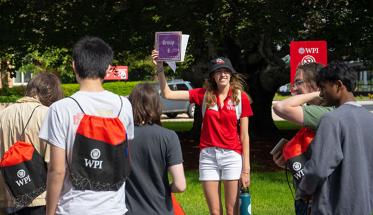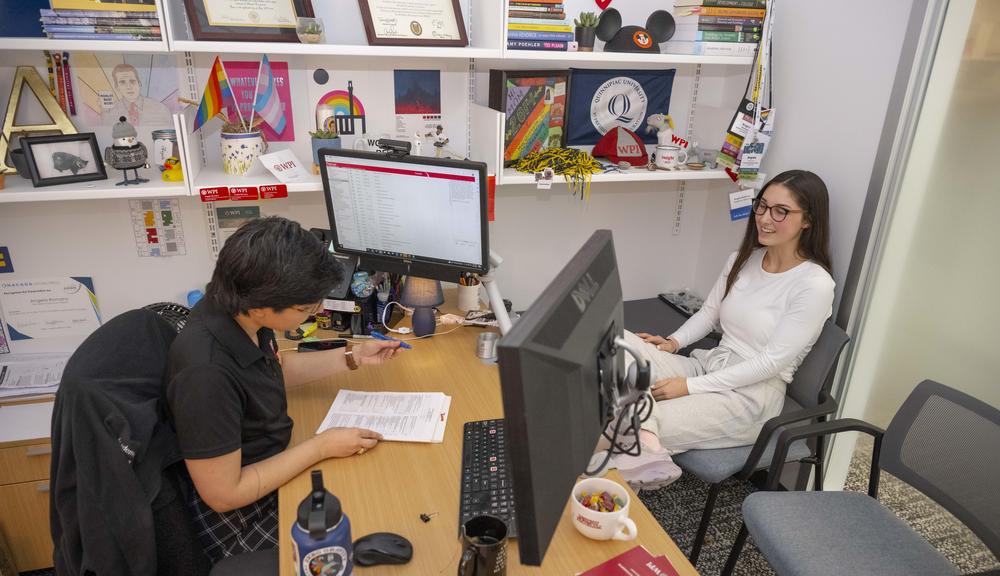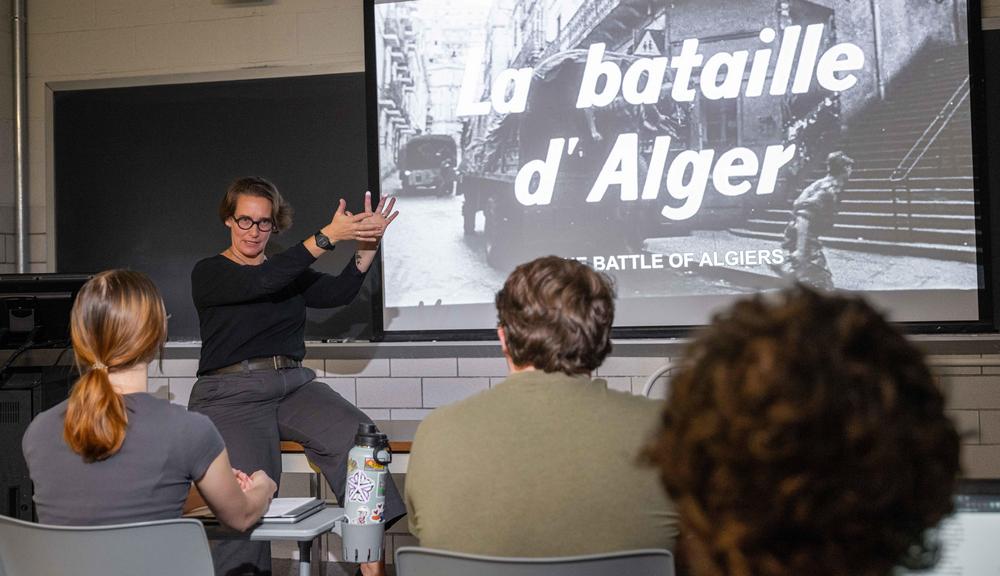No matter the school or kind of program, these three questions are nearly universal among students heading off to college for the first time:
Will I be successful academically?
Will I make friends?
Will I feel at home and be part of the college community?
To help incoming undergrads answer these questions sooner and in a more relaxed manner, a number of offices across campus—Admissions, Student Life, Academic Advising, among others—have collaborated to reimagine the traditional New Student Orientation (NSO), which is usually spread over four days when students move onto campus in August.
This month WPI is piloting the First-Year Welcome Experience, connecting new students to the campus, their peers, and some of the many resources available during this critical transition phase and beyond. From June 6 though 17, some 1,200 students of the Class of ’26 (900 in-person, another 300 online) will be connected with individual advisors—including an Academic Support Advisor who will register them for courses—and given opportunities to mingle and meet other students before the academic year starts.
How It Began and Why It Matters
The First-Year Welcome Experience grew out of student feedback and the work of the university’s Mental Health and Well-Being Task Force. The Task Force found that students lacked information about support resources available to them, and that a gap in social connections exacerbated their sense of disconnection and isolation. Subsequently, the First-Year Experience section of the Mental Health Implementation Team (MHIT) is focused on responding to those needs. The work is being led by Paul Reilly, assistant dean of student success in the Office of Academic Advising, and Christine Sharry, assistant dean of student activities.
“Students have given us some really good feedback about NSO and their experience transitioning to campus, and we know it can be overwhelming for some,” says Sharry. “Typically, we give them a lot of important information in a short period of time, just as they’re getting ready to start the seven-week term. With this pilot program, we’re really excited about starting the student experience earlier to help engage them sooner and more fully, and at a slower pace over the summer.”
“It can be difficult for students to get off on the right academic foot if they’re dealing with so many new things and strange new processes,” and says Reilly. “But with the right connections and support, they can feel more prepared right from the start.”
By bringing students to campus in small groups over two weeks, the team aims to reduce their anxiety and provide them a social safety net: students meet peers now and, by August when they come back and campus is abuzz with the older classes and graduate students, they already know a few friendly faces and have a support team to rely on.
How It Works and What’s Ahead
Each student will meet with a Summer Transition Assistant—one of 10 upperclass students hired by the university to serve as guides over the summer and through the first two weeks of A-Term, in person and online, individually and in groups.
“These new assistants are one demonstration of the university’s commitment to helping students build relationships on campus, which greatly supports their mental health and well-being,” says Jennifer Cluett, executive director of admissions. “All colleges have seen a gap in peer-to-peer communication because of the pandemic, and WPI’s Summer Transition Assistants can more actively help new students begin to build those critical friendships and peer groups.”
One area upperclass students suggested be reexamined is registering for first-year A-Term courses. “Like anything new, it can be a bit confusing and can cause anxiety, mainly because new students aren’t familiar with our processes,” says Reilly. “They don’t yet know, for example, that being waitlisted for a high-demand course is not such a big deal, so they naturally get anxious. But there’s a lot more flexibility here than they would expect—often course sections can be added, or we can offer other solutions.”
As part of First-Year Welcome Experience, new students (and their parents) will meet individually with their Academic Support Advisor, who will survey the student’s interests and course preferences and manage the registration process for them. “Our team will manually register all 1,300 enrolled students," Reilly adds. "It’s time consuming but we think it’s an approach that will help students start their academic career with less anxiety.”
Meanwhile, parents have their own daylong experience, on campus or virtually, as part of their student’s welcome. WPI has arranged for a parent social; a session illustrating “Life in the Classroom,” highlighting either the Humanities and Arts or Great Problems Seminar, tours, and a resource fair showcasing the important supports the university has in place and how parents might encourage their students to access them.
“We want to work with parents to help them appropriately support their student," says Reilly. "That is, to help their student gain the tools they need to manage themselves and to create a fulfilling college experience.”
The group expects the pilot program to be assessed and enhanced for subsequent years.




